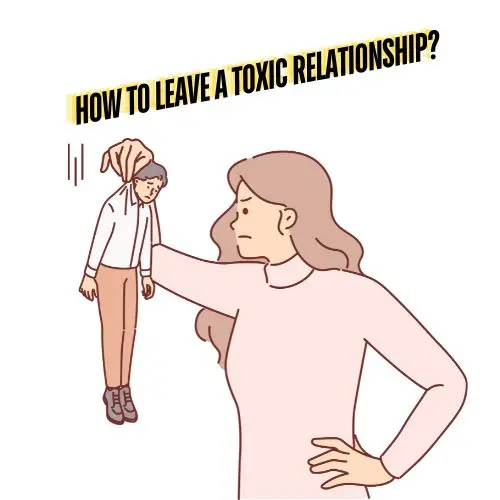Introduction
Relationships exist on a broad spectrum, from supportive to destructive. While no partnership is perfect, toxic relationships take emotional damage to an extreme. A toxic relationship is one where there are consistent negative patterns that undermine your self-esteem and overall well-being.
Key Signs of a Toxic Relationship
- Controlling or manipulative behavior
- Possessiveness and jealousy
- Isolating you from friends/family
- Verbal insults and name-calling
- Physical intimidation or harm
- Demeaning and shaming
- Dishonesty and secrecy
- Addictions and unpredictable behavior
- Never taking responsibility
Toxic relationships are characterized by behaviors such as:
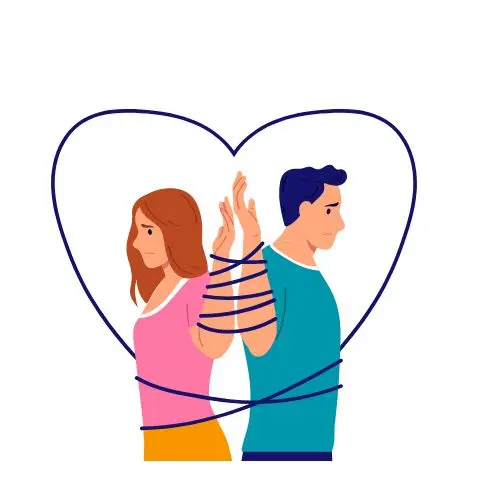
- Manipulation
- Verbal, emotional or physical abuse
- Blaming and shaming
- Dishonesty/betrayal of trust
- Possessiveness and controlling behavior
- Addictions and unreliability
- Intimidation and bullying
- Devaluing and disrespecting
In toxic relationships, one or both partners exercise power and control over the other. There is often an uneven dynamic where one person asserts dominance and the other feels oppressed.
Why People Struggle to Leave Toxic Relationships
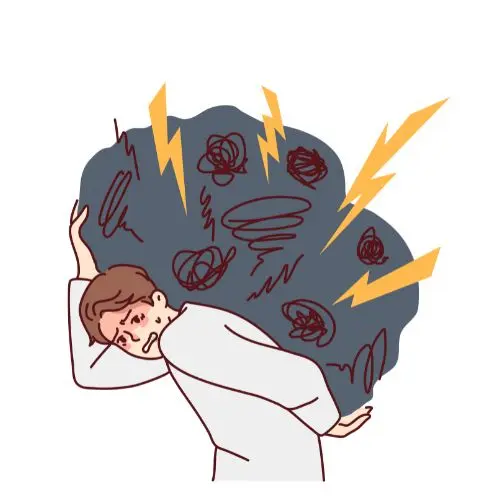
When stuck in an emotionally or physically damaging relationship, it’s common to experience:
- Plummeting self-esteem and constant self-doubt
- Distress, anxiety, depression
- Fear about the ability to leave and/or live alone
- Guilt about failure and letting others down
- Doubting things could be better with someone else
- Blaming yourself for problems
- Fear of retaliation from the abusive partner
- Lack of financial independence or resources
- Isolation from friends/family who could help
- False hope the partner will change their behaviors
These emotional and logistical barriers keep many clinging to dysfunctional relationships. The toxicity often happens gradually over the years, making it harder to recognize and choose better.
How to Find the Courage to Leave an Unhealthy Relationship
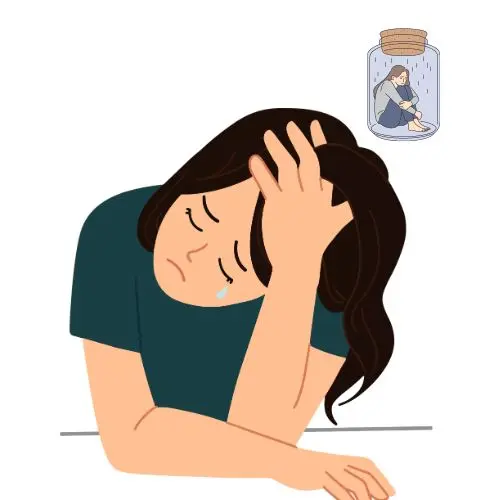
- Acknowledge this relationship is causing you harm.
Toxic interactions undermine your entire sense of self and well-being. Recognize enduring this situation is neither normal nor something you deserve. Admit this partnership is no longer serving your growth and happiness.
- Begin confiding in people you trust.
Secrecy and isolation allow dysfunction to thrive. Violating the façade and confiding in non-judgmental friends/relatives helps you challenge false narratives about staying. Building a support system equips you emotionally to leave.
- Document the toxicity as it occurs.
Note examples of controlling behavior, violations of trust, disrespectful language, threats, etc. Recording factual instances helps reveal the unacceptable patterns and combat self-doubt. Review if you feel your resolve is weakening.
- Consult domestic violence or abuse hotlines/resources.
Connect anonymously with advocates trained in these complex dynamics. They help you with a safety plan, find temporary housing, obtain legal protections, access counseling, and understand you are not alone. Utilize every resource available.
- Secure your independent finances and essential documents.
Abusive partners often control through money and legality threats. Quietly open separate accounts, accumulate any funds you can, assemble legal documents, and contact attorneys to understand rights/risks regarding joint assets, rental agreements, child custody if applicable, etc. Knowledge and resources boost safety and options.
- Enlist help from authority figures as needed.
For severe physical danger, do not hesitate to request police escorts, temporary restraining orders, or support from religious leaders, counselors, and other community allies. Your safety overrides any stigma or pride barriers.
- Find temporary alternate housing if possible.
Whether a shelter, supportive friend’s couch or transitional program, lined up alternative, or even temporary refuge allows you to exit completely should you choose. Even if you return, the act of leaving conveys this pattern must change.
- Expect manipulation and resistance when exiting.
Abusive partners often insist you cannot cope without them, threaten self-harm, make dramatic promises to reform, or punish you for abandoning the relationship. Recognize these as temporary bids for control. You know the truth about this person’s capacity for real change from past cycles. Sever all contact after leaving.
- Commit to a complete long-term severance.
Toxic relational patterns with controlling people do not improve over time without intensive counseling. Cut contact with the person in all forms for your sanity and safety. This allows you to detoxify without renewed manipulation that could weaken your resolve.
How to Heal after Leaving a Toxic Relationship
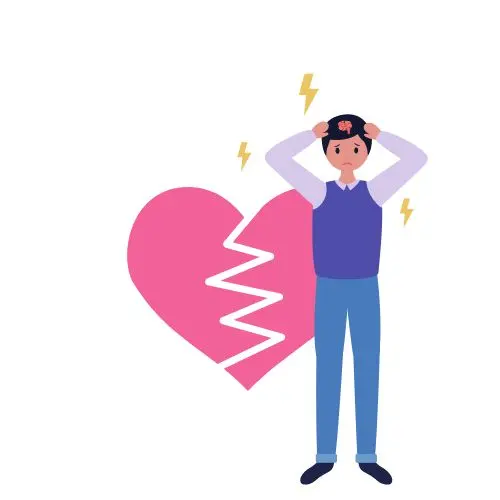
Escaping even the most dysfunctional relationship does not instantly solve your problems. The mental, emotional, and sometimes physical damage can haunt you for years if not properly addressed. After leaving, be sure you:
- Continue confiding in your support system.
Speaking openly about what you endured helps release shame, alleviate isolation, and reassure you that healthier connections exist. Friends who validate your feelings and remind you of your worth can motivate you to sustain positive change.
- Obtain personal counseling or therapy.
Work with a professional to unpack lingering trauma and faulty self-beliefs developed from the toxicity. Identify self-sabotaging patterns to change going forward. Discover your core emotional needs and set standards for meeting those in healthy ways. Know your value.
- Limit alcohol/drug use during the transition.
Relying on substances to numb the psychological pain often leads to more severe problems down the road. Face emotions directly and process them. Ask for support to limit enabling behavior as well.
- Make self-care an utmost priority.
Redevelop a nurturing routine of proper sleep, nutrition, exercise, and relaxation activities that comfort you. Clarity and conviction replace doubt when you care well for your body and spirit. Reflect on what makes you feel peaceful, content, and engaged. Follow those passions.
- Avoid romantic attachments or intimacy initially.
Avoiding rebounds or compromised emotional bonds with others during early recovery is critical. Before attempting new romantic pursuits, take sufficient time to rediscover your equilibrium and what you truly want in healthy relationships. Casual socializing is fine, but be cautious about committing again quickly.
- Forgive yourself for staying as long as you did.
Toxic relationships create trauma bonding, and the fog of abuse obscures rational judgment of reality. Have compassion for yourself. The past cannot be changed. Focus only on building the stable, rewarding future you deserve with this hard-won knowledge.
How to Build Healthy Relationships After Healing

Once sufficiently strong and grounded again in your truth, carefully opening your heart remains necessary for fulfillment. Proceed with wisdom by:
- Setting clear standards for how you expect to be treated by others
- Paying close attention to red flags earlier when dating
- Asserting your own needs/boundaries without hesitation
- Refusing to rationalize or minimize disrespectful behaviors
- Ending new relationships quickly if warning signs reemerge
- Believing you deserve someone who cherishes you fully
With post-traumatic growth from the suffering, you become empowered to accept only mutually supportive partners. Never believe you are unlovable or do not have options. Toxic people reinforce those lies – reject them utterly. Your resilience now makes you capable of deep authenticity and trust when you choose wisely.
You must give yourself adequate time to process, release, and stabilize after toxicity before pursuing positive romantic connections again. But once inner peace returns, so too can hope for the rewards true intimacy can bring. Person and timing are everything.
When to Seek Additional Help for Healing
If months pass after leaving your toxic relationship and you still struggle daily with symptoms like:
- Severe depression
- Persistent anxiety, panic attacks
- Inability to function normally
- Dangerous substance abuse
- Self-harming behaviors
Extend more compassion to yourself and urgently seek intensive treatment. Consult a mental health professional to accurately diagnose and medicate any underlying disorders or addictions requiring special intervention.
Conclusion
In very complex cases of relational trauma, facilities exist providing dedicated psychotherapy for domestic abuse survivors. Seek therapy in a structured, monitored setting if you feel utterly emotionally destabilized. Specialized programs can best re-empower your recovery process when self-guided efforts flounder. You deserve to access every resource necessary to regain health.
Leaving an unhealthy relationship changes everything instantly. The aftermath often proves more challenging than the exit itself. But with courage, time, and ongoing support, thriving independently on your own terms grows progressively closer. Those who persevere discover reservoirs of strength and joy previously unimaginable.

